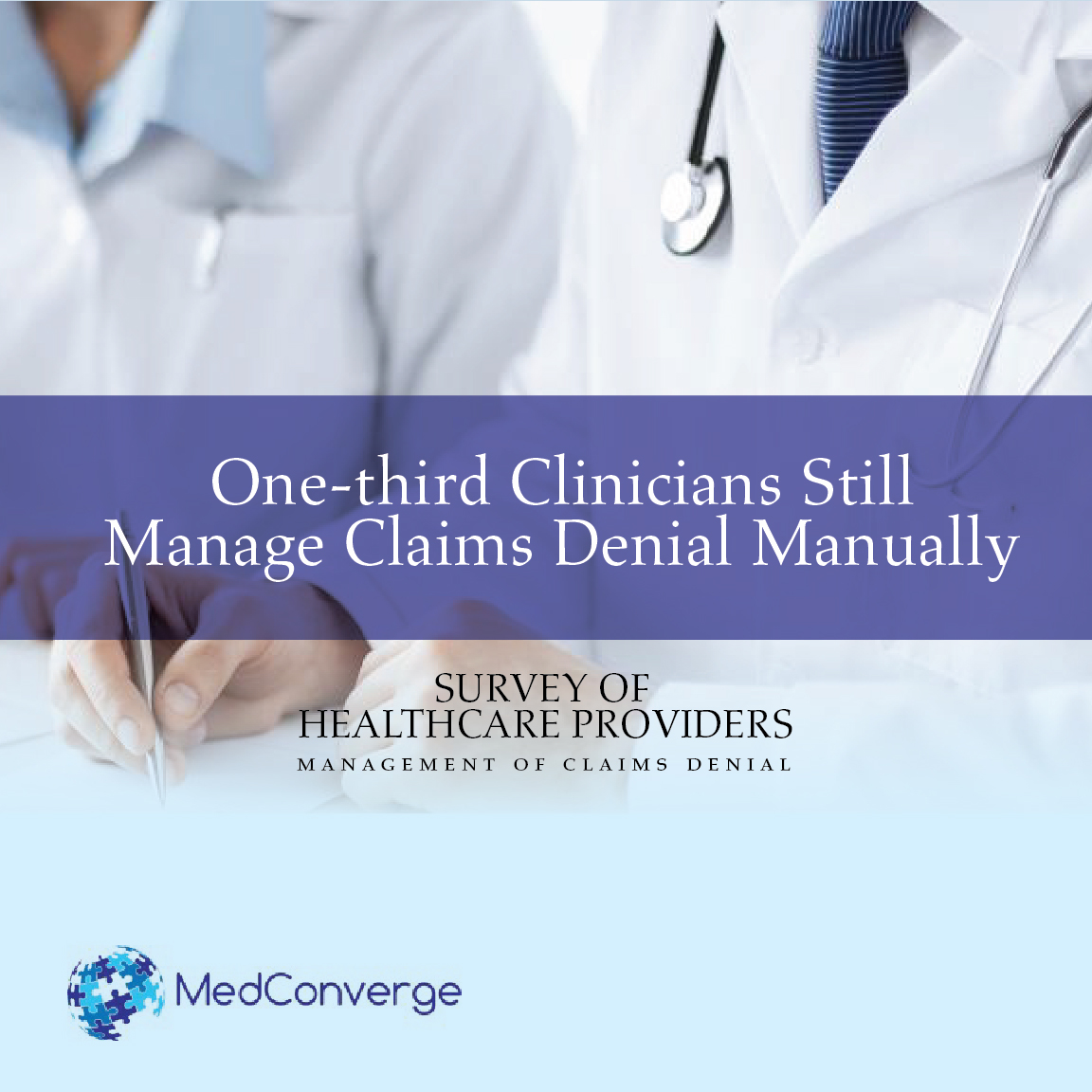Claim submission and denial management are critical components to the revenue cycle of healthcare facilities. As regulations are getting more stringent with the transition to value-based care, healthcare providers are facing an increase in claim denials. It therefore comes as a surprise that nearly one-third of clinicians are still using manual processes to manage their claim denials. These figures were thrown up in the recently released 2016 RCM Denial Management Essential Brief by HIMSS Analytics.
According to Brendan FitzGerald, Director of Research, HIMSS Analytics, “Given the complexities around submitting claims and the labor associated with managing denials, it came as a surprise that more organizations have not automated the denial management process through a vendor-provided solution. The move to value-based care and alternative payment models will not happen overnight. Until those models are tested and implemented, healthcare organizations will continue to focus on current processes, and automating the denial management process could greatly enhance collection efforts.”
Many healthcare providers are re-working on their existing systems to keep up with the demands of the new alternative payment models. There is a need to find different solutions for handling fee-for-service claims in value-based care systems. Information needs to be gathered from across the care delivery spectrum for claims denial management strategies systems to work efficiently.
From the total number of healthcare providers surveyed, 44% used a vendor for their automated claims denial management solutions while 18% used their own in-house built program. While most providers went through a clearinghouse vendor for their claims denial program, around 17% used an EHR vendor. Out of the total number of providers surveyed, a mere 16% employed the services of a best-of-breed revenue cycle vendor. The majority of surveyed providers, who utilized the services of vendors, stated that they were relatively satisfied with their claims management program. According to the authors of the report, “The benefits of identifying root causes of denials, denial identity and resolution and fewer write-offs seem to outweigh any challenges with vendor solutions, leading to higher overall satisfaction with solutions in use.”
Out of the surveyed providers who managed their claims denial in-house, 60% said that they would be bringing in a vendor for their claims denial management within the next 7 to 12 months. Out of the remaining 40%, most stated that they would be doing so within the next 6 months. This shows that the adoption rates for vendor managed solutions and automation will increase in the coming year. Citing this as a positive step, the authors stated, “The transition from volume to value-based care and the use of alternative payment models could have a significant impact on the denial management process, depending on which type of APM is in use. However, this transition is not going to happen overnight. Organizations will need to rely upon these solutions and processes and continue to collect payments until the move to APMs has been established on a larger scale across the healthcare industry.”
Outsourcing their revenue cycle processes will help healthcare providers focus on their primary job – providing healthcare rather than on managing their revenue cycles. According to Monte Sandler of NextGen RCM Services, “the providers are reimbursed on a transactional basis and they see as many patients as they can to generate revenue. However, their expertise is in patient care and, quite honestly, nobody prepares them for proper coding, proper billing, and collections. It’s always on the back of the list.”
Most healthcare facilities are now considering bringing in vendor managed claims management programs to help them in the transition to value-based care. Providers understand that an automated solution could be the answer for providing the much needed data and to handle the required information in a more meaningful and organized manner.



